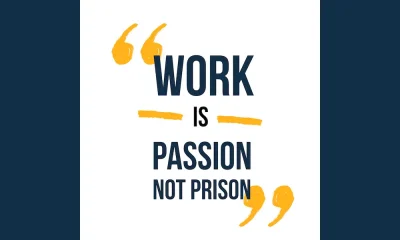Legal
Types Of Legal Software Businesses Need In 2024

Did you know lawyers – particularly in-house – spend nearly half their day bogged down in low-value work? Billable work or tasks needing a lawyer’s expertise only get a couple of hours each day.
Legal software is proven and popular for improving lawyers’ productivity through:
- making lawyers’ workflows more efficient
- reducing unnecessary administrative work
- empowering commercial teams to self-serve on routine work
This business blog looks at legal software enabling lawyers more time on higher-value work.
Legal Software
‘Legal software’ is a term that refers to solutions for the legal industry. Designed and marketed to improve legal processes, they’re more efficient or designed to streamline basic legal processes for commercial teams and inexperienced individuals.
What legal software solutions should businesses be prioritizing in 2023, and why?
Types
Here’s a list of the 7 types of legal software that will continue to rise in popularity in the year ahead.
- Contract management, and contract review
- Electronic signatures
- eDiscovery
- Legal research
- Knowledge management
- Privacy management
1. Contract management software
Designed to streamline the contract workflow for lawyers and the teams they enable, contract management software is among the most prevalent pieces of legal software on the market, and one of the most functional.
Most contract management software provides users with the features they need to create, negotiate, sign, review and renew contracts with greater ease.
Example
Manual contract workflow typically involves sending a Word document via email with each amendment and change request until the final version is eventually saved in a drive somewhere, either online or on a computer.
With contract management software, legal teams access, create, revise, agree and sign contracts all-in-one unified workspace, with advanced features like comments, approval workflows and conditional logic.
This type of legal software also enables business teams to work on contracts by self-serving on them using the templates provided by their company’s legal team. This means that they can proceed with standard contracts at their own pace, rather than waiting around for a busy legal team to be free.
2. eSignature software
eSignature software, also known as electronic signature software, is a piece of technology that enables users to sign documents and contracts electronically from anywhere in the world, using any compatible device.
Creating a secure digital signature on documents and forms eliminates the need for parties to meet in person to sign agreements or to email, print, sign and scan documents to sign them.
In most jurisdictions, such as England and Wales, eSignatures are legally binding since common law doesn’t prescribe a specific type of signature. So long as certain procedures are followed, electronic signature software can get contracts signed more efficiently than with wet-ink signatures.
3. eDiscovery software
eDiscovery software is also gaining momentum, with estimates of a $2.7 billion growth in this market between 2021-2025.
eDiscovery software is a piece of software designed to process extremely high volumes of electronically stored information. It can usually identify, cull, review and produce records upon request. It is commonly used by large enterprises and legal teams when investigators, the government, or opposing counsels are seeking information about something to ensure compliance.
Like contract management software, eDiscovery software primarily reduces the time and effort spent manually completing specific administrative tasks. It can source and flag certain information quickly and accurately – hence its popularity.
4. Legal research software
Legal research software is a pool of specialized tools and databases targeted at lawyers and paralegals who need access to legal intelligence regularly.
A legal research tool will usually empower lawyers to quickly and efficiently locate and query legal precedents and knowledge, such as case law, judgments, statutes, and other relevant information to their practice area.
Since manually searching for particular information can be arduous for busy legal teams, this software enables them to quickly identify relevant information that can help in their case and leverage this.
5. Knowledge management software
Knowledge management software collates, organizes, and shares large bodies of information in a centralized space. Often, these tools provide a single platform to store critical data, strategy, notes, and project updates for a team to view, with one single source of truth.
These tools effectively encourage collaboration and make information readily available for teams across different departments. Compared to traditional methods of storing data and knowledge in office cabinets and via email, knowledge management software makes searching and querying data much more manageable and ensures that a company’s information is securely stored.
6. Privacy management software
Privacy management software is essential for growing tech companies, as it can be used to assess, respond to and monitor risks that they might face.
Some privacy management software is set up to demonstrate compliance with data protection and security regulations and standards, while others are created to manage personal data and risk.
According to Gartner, privacy management tools can track incidents that result in unauthorized data disclosures, assess compliance with data protection regulations and aid in drafting and distributing privacy policies, among other things.
7. Contract review software
Contract review is typically a very time-consuming process for lawyers. Mistakes can often be made when a contract review is conducted manually. This is where legal software contract review software comes into its own using AI (artificial intelligence) to interpret contract language and extract essential data in less time and with more accuracy than a manual process.
This type of legal software is perfect for businesses that only focus on reviewing contracts, not creating, negotiating and signing them. However, it will not suit companies looking for a more comprehensive contract solution.
Summary
There are countless legal software tools on the market today, each promising to add value to the workflow of busy legal professionals in some way.
When deciding what legal software is right for your lawyers and the business, or whether to invest in one at all, it is crucial to understand your pain points first. For example, what part of your workload is weighing you down? Are you falling behind in certain areas? Are specific manual processes excruciating for your legal team?
Once you have identified the aspects of your workflow that could be improved, it becomes far easier to determine which of the leading legal software solutions would work best for you and your business and how you can leverage it for the best results.
Publisher Note:
BusinessBlogs thanks Richard Mabey, CEO, Juro, for his expertise and contribution.






